



Suggested Citation: NewClimate Institute and Council on Energy, Environment and Water. 2023. Assessment of the G20 Members’ Long-Term Strategies: Commonalities, Gaps and Areas for Cooperation. Cologne and Berlin: NewClimate Institute.
According to the Paris Agreement's Article 4, paragraph 19, nations are strongly urged to create and communicate their long-term strategies (LTS) considering the principle of Common But Differentiated Responsibilities and Respective Capabilities (CBDR-RC) given the national circumstances. These strategies serve as blueprints for guiding climate actions and investments and are instrumental in charting the trajectory towards decarbonisation. Seventeen G20 members have submitted their LTS (July 2023). This report, in collaboration with NewClimate Institute, systematically assesses these 17 LTS to identify commonalities, gaps and opportunities for international cooperation for the LTS submissions.
Under Article 4 paragraph 19 of the Paris Agreement, countries are encouraged to formulate and communicate long-term low greenhouse gas emission development strategies (LTS). LTS set out long-term visions that can inform climate action and investments on the short to medium term. Collectively, LTS should chart the pathway to achieving global net zero CO2 emissions by 2050. They can be a useful planning component to inform NDCs, sectoral mitigation and adaptation plans, and investment plans.
Seventeen G20 members had submitted an LTS, outlining their long-term decarbonisation and development plans, by July 2023. This report systematically assesses these 17 LTS to identify commonalities, opportunities for international cooperation, and gaps that can be addressed in future LTS submissions. We chose to analyse G20 members as they represent over 80% of both the global GDP and greenhouse emissions, in addition they have a significant impact on global decisions that impact long-term global decarbonisation efforts.
Fifteen out of 17 LTS we analysed acknowledge the need for R&D in key technologies crucial for their long-term transformations, and many explicitly identify it as a priority and international cooperation area. International R&D partnerships should encourage increased participation from Global South countries to better inform innovation priorities and to facilitate equitable access to latest technologies.
While most G20 members acknowledge the role of climate finance, only six of the 17 we analysed include quantitative estimates in their LTS. We also identify a further lack of details on how adequate climate finance will be mobilised for their long-term transformations. Only five G20 members refer to their existing commitments or mention their intention to provide international climate finance.
Finally, whereas 11 of the 17 G20 members recognise the need for capacity building to achieve long-term transformation, they say little about their exact capacity needs or the potential for international cooperation in this area.
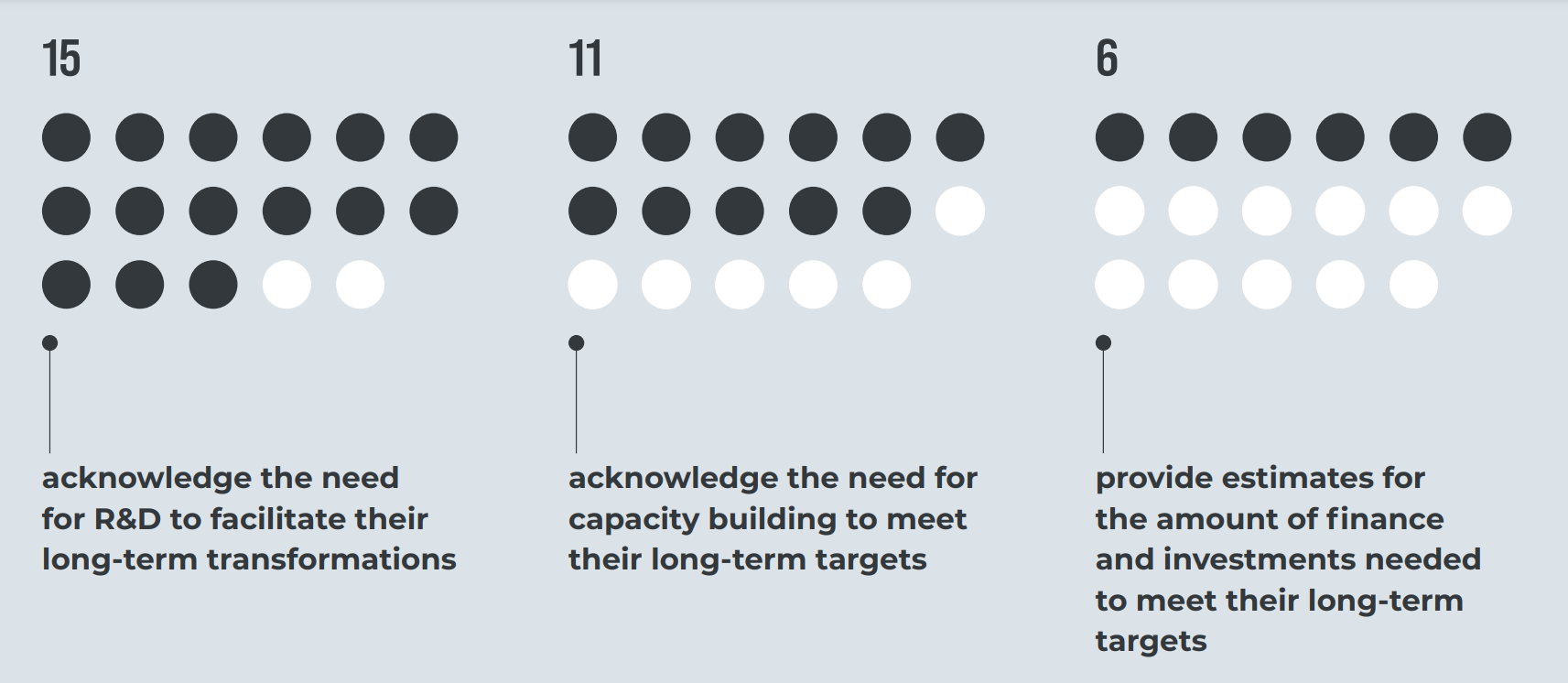
Source: Authors' analysis
Few G20 members’ LTS contain adaptation targets and measures. Only eight of the 17 LTS mention the need for adaptation finance but fail to quantify these needs. Several countries acknowledge the role of international cooperation in both adaptation and adaptation finance. India and Indonesia are the only two G20 members to refer to loss and damage in their LTS.
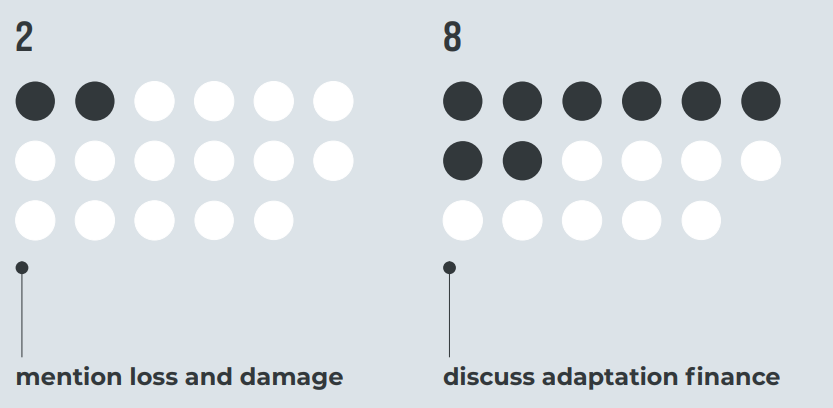
Source: Authors' analysis
Sixteen of the 17 LTS present a net zero target. Twelve of them target net zero by 2050, whereas Germany aims for 2045, China and Indonesia 2060 and India 2070. The pace of the transition will be faster for Global South than for Global North countries, considering the difference between their peak emission years and headline target years, and the former will thus require proactive technical and financial support from the latter to achieve their long-term transformations. The UK is the only G20 member to cover emissions from international aviation and shipping in its net zero target.
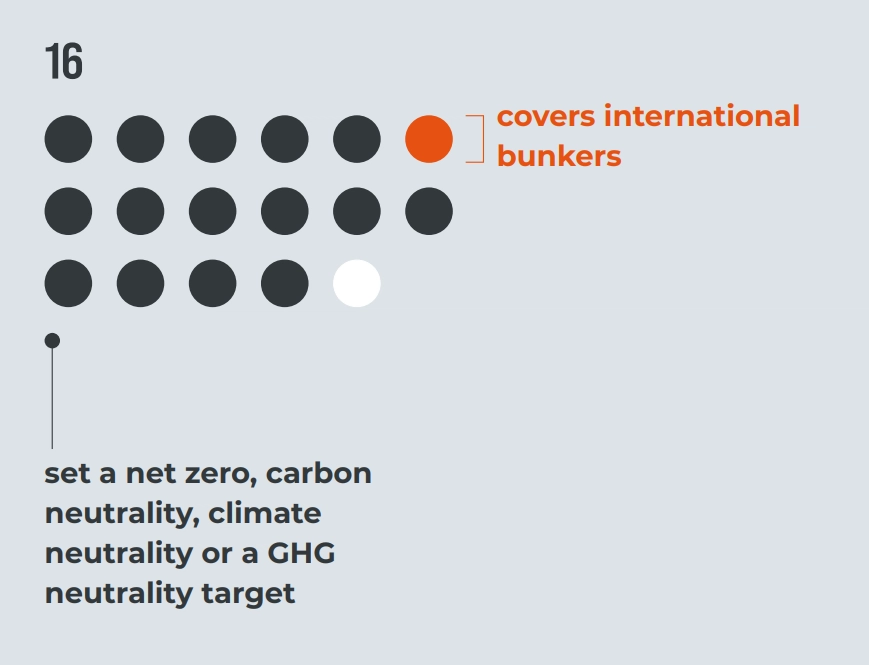
Source: Authors' analysis
All G20 countries we analysed have sectoral decarbonisation targets or plans in their LTS. Most countries prioritise such plans for the power, buildings, agriculture, industry, and transport sectors, and fewer countries prioritise the waste sector. Only four G20 members outline lifestyle-related mitigation plans, mainly focusing on demand-side management, energy-efficient behavioural nudges, and educational programmes. However, no country mentions lifestyle change as a key measure for reducing demand for and emissions from agriculture and international aviation.
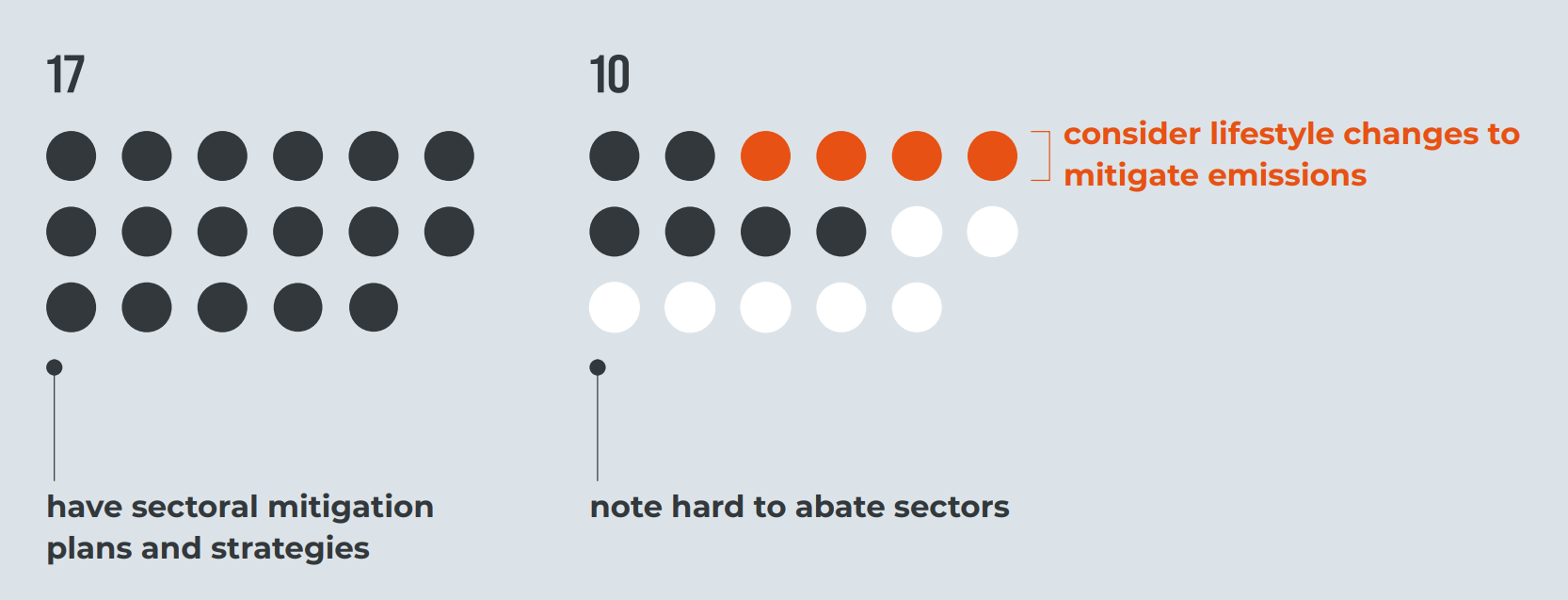
Source: Authors' analysis
All 17 LTS mention energy efficiency. While 16 G20 members refer to renewable energy as a key part of their decarbonisation strategies, only a few provide specific targets. Most G20 members also consider hydrogen a key decarbonisation opportunity, with applications in industry, transport, refining, and power sectors. All countries plan to use bioenergy as part of their decarbonisation efforts, and nine also mention BECCS as an emissions removal technology to achieve net zero targets. Renewables, hydrogen, nuclear, and bioenergy all have sustainability impacts, which are not acknowledged in most LTS that anticipate a role for these technologies.
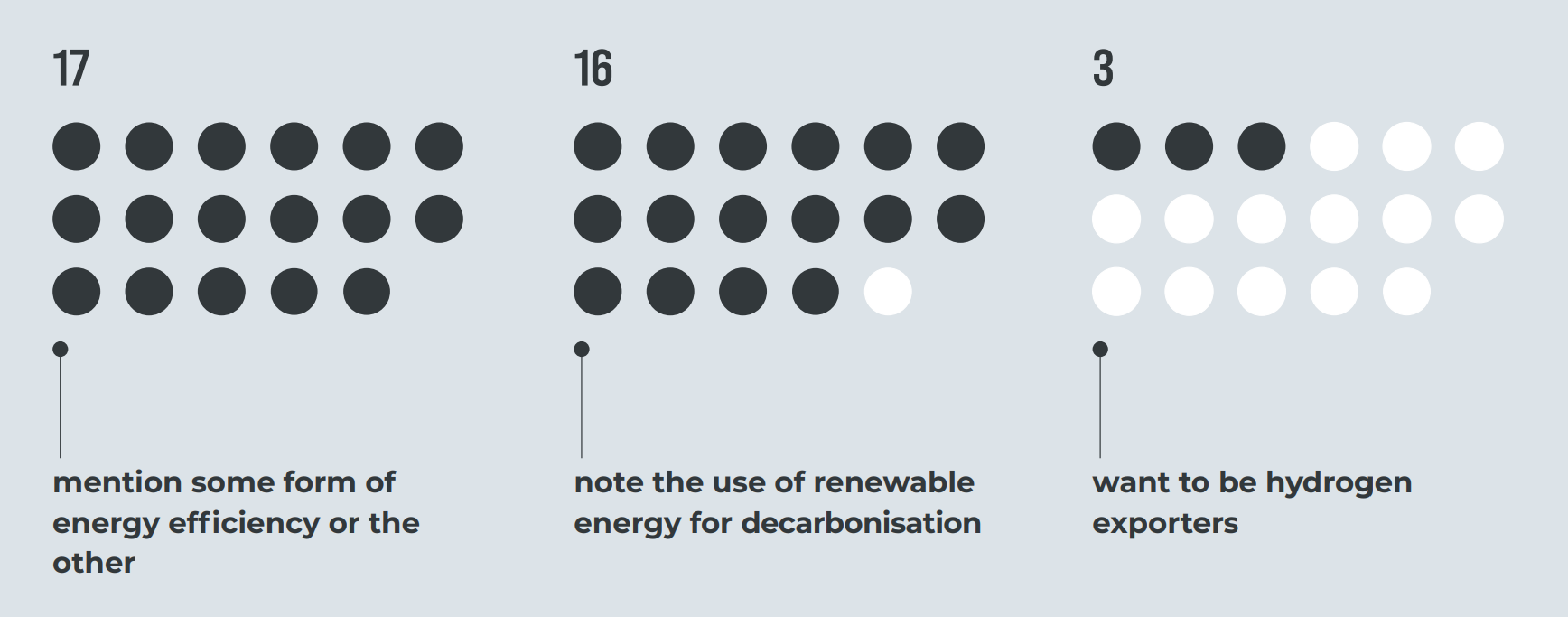
Source: Authors' analysis
While several G20 members mention plans to reduce their dependence on fossil fuels gradually, France is the only G20 member to commit to phasing out fossil gas and oil exploration on its own territory in its LTS. Although we identified statements on the phase-out of fossil fuel subsidies in nine of the 17 LTS we analysed, they lack clarity regarding the fuels covered and the phase-out timeline.
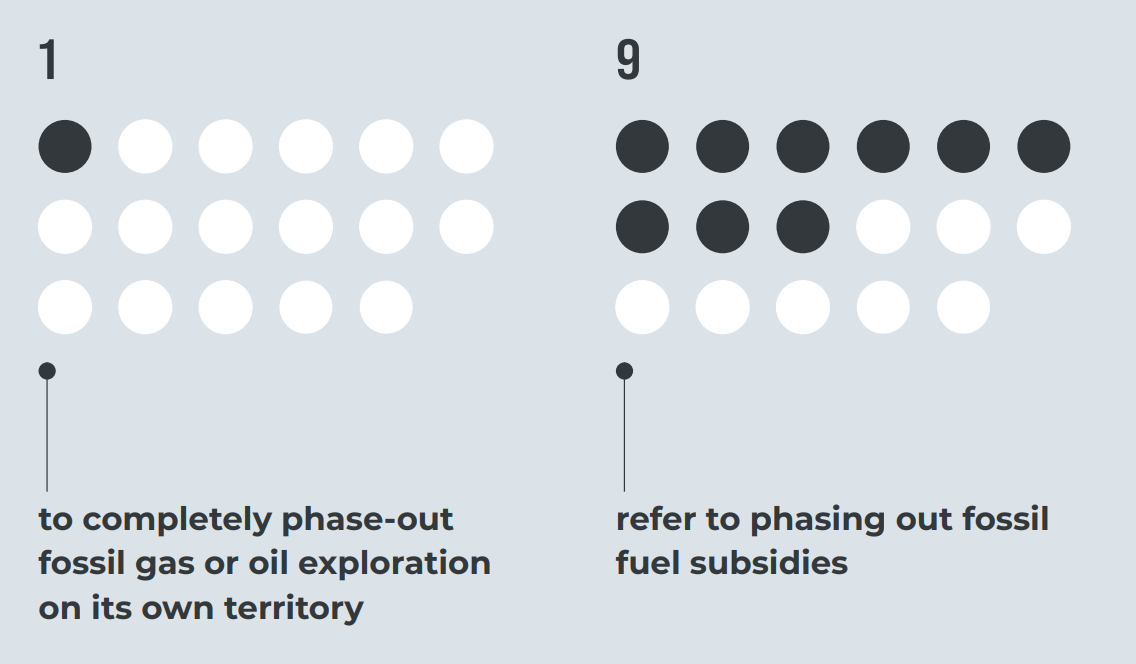
Source: Authors' analysis
The G20 countries we assessed aim to reduce on average 72-81% of their 2019 emissions by 2050. To achieve net zero, these residual emissions must be offset with CDR, either through nature-based or engineered methods. The ten countries providing estimates on residual emissions expect joint emissions of 3-4.3 GtCO2e in 2050, which implies the need for substantial carbon removal efforts. Ten of the LTS provide quantitative estimates for CDR, with nine LTS providing estimates for nature-based CDR and six for engineered CDR. Nine of the G20 members assessed see a role for BECCS but do not address how to account for emissions from bioenergy production, transport, and use across national borders.
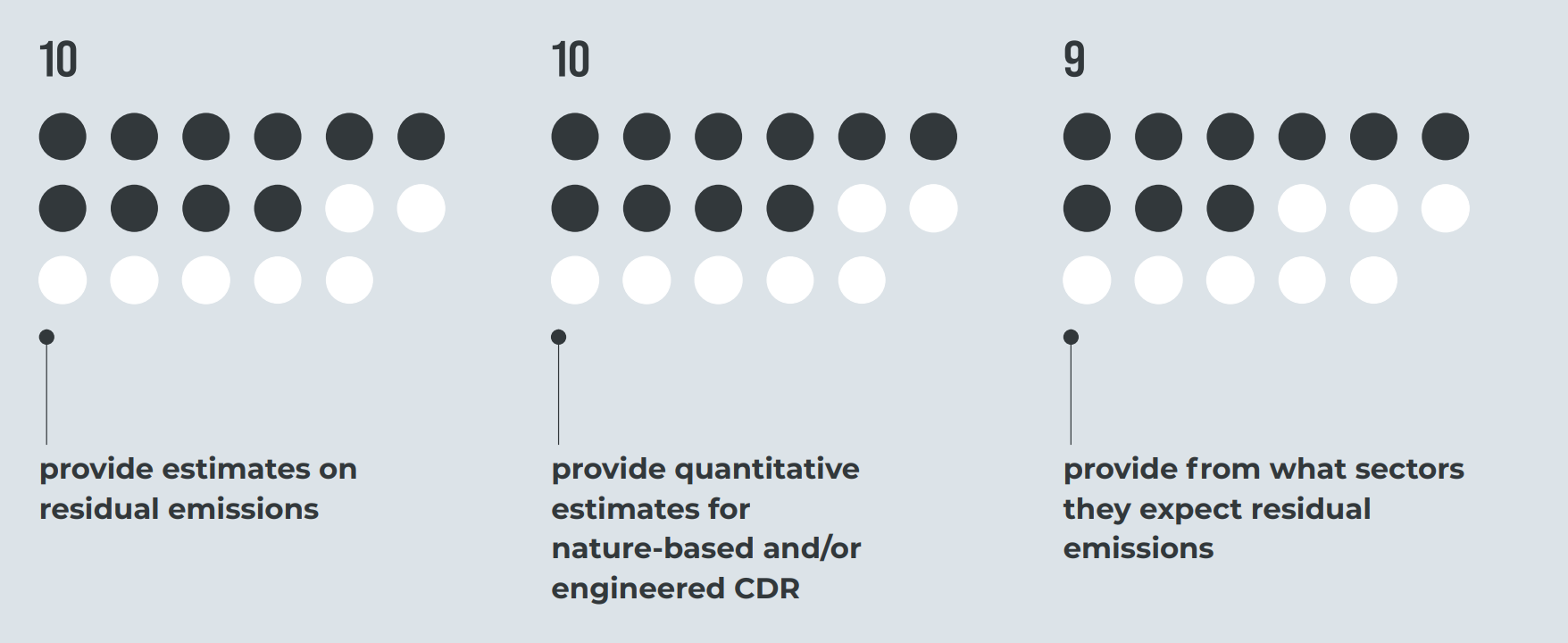
Source: Authors' analysis
Our assessment results in a set of recommendations for G20 members, formulated along four broad action points: Include, Specify, Enhance, and Cooperate on.
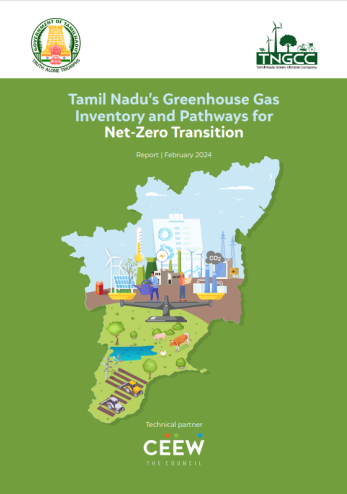
Tamil Nadu’s Greenhouse Gas Inventory and Pathways for Net-Zero Transition
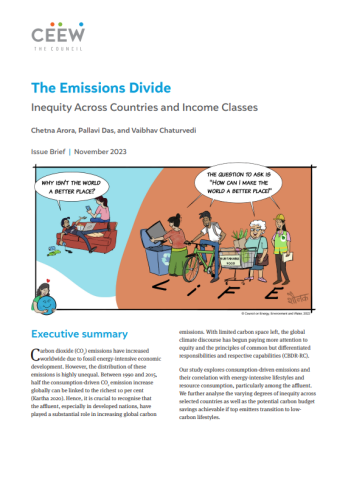
The Emissions Divide: Inequity Across Countries and Income Classes
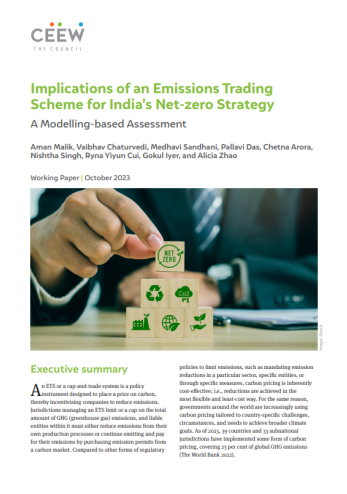
Implications of an Emissions Trading Scheme for India’s Net-zero Strategy
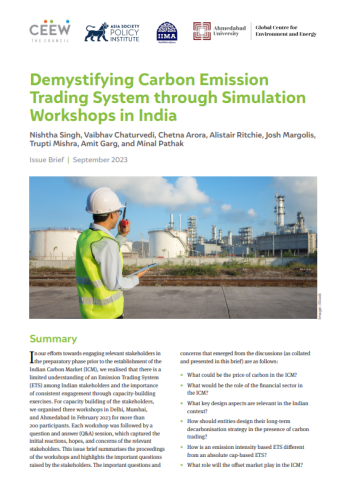
Demystifying Carbon Emission Trading System through Simulation Workshops in India